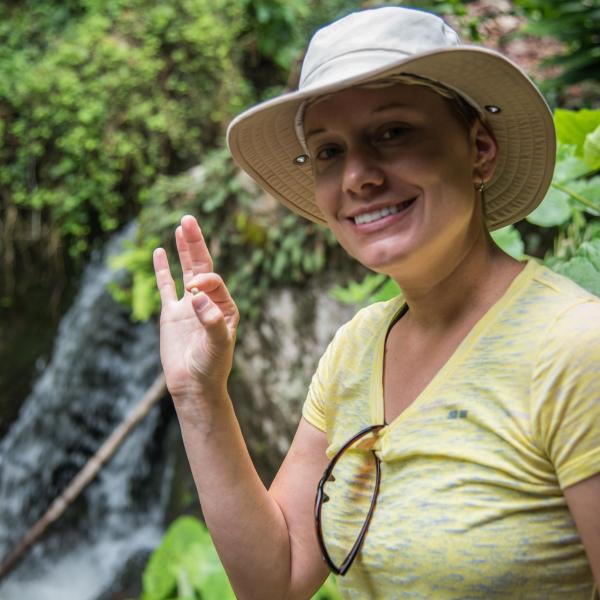
Since the inception of ATI MissionWorks, I’ve wanted to go on a trip with Efosa. Last month it finally came to fruition! I’m very grateful for the opportunity to serve with my teammates and treat the lovely people of Guatemala. My first day in Guatemala City was spent waiting at the airport for the rest of my teammates. There I witnessed one of the backbone characteristics of the Guatemalan people – family first. The waiting area was full of families, sometimes three generations, waiting with balloons and noisemakers for their loved-ones to return. There was no line of cars slowing down just enough for the weary traveler to jump in. The entire family was there – as one unit.
This family-centered feel was witnessed throughout every part of the trip. During each of the five treatment days, we cared for many children with disabilities. The love and attention displayed by moms and dads during the treatment sessions was something special. Most parents had never received a diagnosis explaining why their child couldn’t walk, or sit up, or crawl. While they were looking for answers about how they could improve the function and independence of their child, or decrease pain, there was no evidence of “Why me?”.


And that is the second great lesson I learned from my experiences with MissionWorks. Although people in the countryside may live in a house of tin and branches tied together for walls, the children still laugh and play futbal in the streets. They don’t understand the word poverty. They just live. They get by. They survive. And that’s their life.
Since my return home, I’ve told countless stories and shown pictures to many. Every so often I’ll hear, “It makes you appreciate where you come from, doesn’t it?” But the poor people of Guatemala do not miss hot showers or toilets that flush. They do not have to worry about drinking bottled water because they have immunities built up that I have not been exposed to. They don’t know poverty; they just are.
I grew up on a farm in rural Illinois and throughout college I was often asked if farm life was boring or hard. I always answer, “No, I didn’t know anything different.” And I think that’s how many Guatemalans are. They don’t know any other life, so they don’t dream or wish for one. They don’t have TV shows bragging about how the rich and famous live, so they have no societal pressures or drive to be something they are not. I wish American society could grasp this concept. Honestly, every time I was asked if I appreciate where I come from, I was offended. As Americans, we are sometimes perceived as having a belief that we are better than others, when it simply is not true. We are conditioned to try to get to the top and be successful. The simplicity of life, and a strong family-unit, are two life-lessons I’ll always carry.


Thirdly, I learned that to really connect with people, you have to look at them carefully in the eye, smile, and touch them with caring hands I’m embarrassed to say that I know very little Spanish. This forced me to connect with my patients in other ways. Imagine if we can have this focus everyday with every patient, how fruitful our interactions could be! No one was texting during treatment. I wasn’t click-clacking on a computer during my evaluation. We were locked in. I was focused on every gesture, every Spanish word – trying to decipher what was being said. Although I definitely encourage one to learn the native language, I learned that focus, eye contact, and a caring touch can overcome any language barrier. It is true, laughter is the universal language!

Lynette Carlson, DHS, MS, ATC – Reflection from ATI MissionWorks June, 2016 trip to Guatemala.
